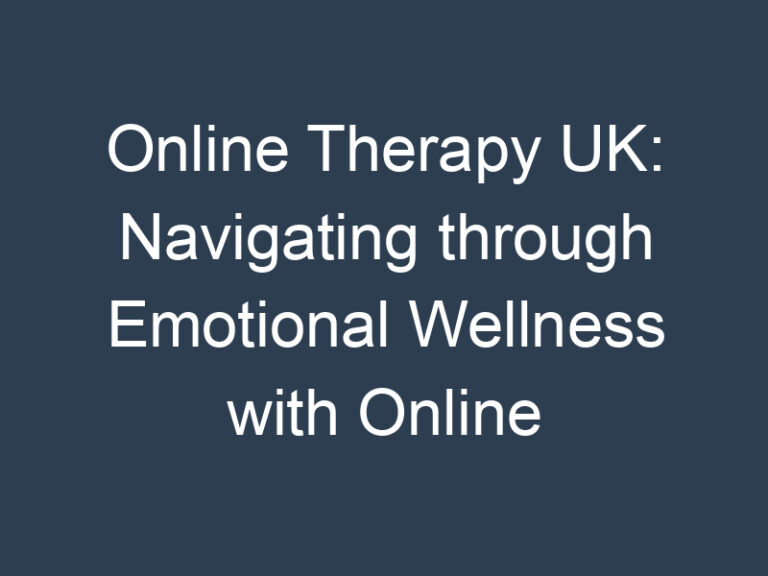Breathing New Life The Revolutionary CPAP Therapy
In the realm of healthcare, innovation has the power to transform lives and improve the quality of life for countless individuals. One such innovation that has garnered attention in recent years is Continuous Positive Airway Pressure, commonly known as CPAP therapy. This remarkable treatment has become a lifeline for people battling sleep apnea and related disorders, making it a revolutionary advancement in the world of medicine.
Understanding Sleep Apnea
Before delving into the marvel of CPAP therapy, it’s essential to understand the problem it seeks to address—sleep apnea. OSA is the more common form and is typically caused by the relaxation of throat muscles, leading to a blocked or narrowed airway. Central sleep apnea, on the other hand, is less common and occurs when the brain fails to send the appropriate signals to the muscles that control breathing. Both types can have serious health consequences, including daytime fatigue, high blood pressure, and an increased risk of heart disease.
CPAP Therapy: A Breath of Fresh Air
Continuous Positive Airway Pressure (CPAP) therapy has emerged as a game-changer in treating sleep apnea, particularly OSA. The core principle behind CPAP is straightforward: it delivers a constant stream of pressurized air into the patient’s airway to keep it open throughout the night. This prevents apneas and allows individuals to experience uninterrupted, restorative sleep.

Critical Benefits of CPAP Therapy
Improved Sleep Quality: CPAP therapy ensures that individuals with sleep apnea receive adequate oxygen throughout the night, improving sleep quality and reducing daytime fatigue.
Enhanced Alertness
With better sleep, CPAP users often experience increased daily alertness, improving their overall quality of life and productivity.
Lower Risk of Health Complications
By effectively treating sleep apnea, CPAP therapy can help reduce the risk of related health issues such as high blood pressure, heart disease, and diabetes.
Enhanced Mood
Many CPAP users report improved mood and reduced symptoms of depression and anxiety due to better sleep.
Increased Longevity
Treating sleep apnea with CPAP therapy can contribute to a longer and healthier life by reducing the risk of life-threatening conditions.
Technological Advancements in CPAP Machines
Modern CPAP devices are designed to be compact, quiet, and user-friendly. They often come equipped with features like humidifiers to prevent dryness of the airways and data recording capabilities that allow healthcare providers to monitor the effectiveness of treatment.

Furthermore, advancements in mask design have made CPAP therapy more comfortable and less intrusive. Patients can choose from various mask styles, including nasal pillows, nasal masks, and full-face masks, to find the one that best suits their preferences and needs.
Conclusion
CPAP therapy represents a shining example of how technology can significantly impact healthcare and improve the lives of those affected by sleep apnea. By providing a continuous stream of pressurized air to keep airways open, CPAP therapy has transformed the treatment landscape for this condition. Its benefits extend far beyond a good night’s sleep, as it helps reduce the risk of severe health complications and enhances overall well-being.
As technology advances, the future holds promise for even more innovative solutions in the field of sleep medicine. However, for now, CPAP therapy remains a beacon of hope for millions of individuals who can breathe easier, sleep better, and live healthier lives, all thanks to a simple but powerful stream of air.
FAQs
What is CPAP therapy?
CPAP therapy is a medical treatment for sleep apnea and related sleep disorders. It involves using a CPAP machine to deliver a continuous stream of pressurized air to keep the airway open during sleep.
How does CPAP therapy work?
A CPAP machine delivers a constant, gentle air flow through a mask worn over the nose, mouth, or both. This airflow prevents the airway from collapsing or becoming blocked, allowing uninterrupted breathing during sleep.
What is sleep apnea, and how is it related to CPAP therapy?
CPAP therapy is one of the most effective treatments for obstructive sleep apnea (OSA), as it prevents the airway from collapsing, reducing or eliminating apneas.
What are the common signs and symptoms of sleep apnea?
Common symptoms include loud snoring, choking or gasping during sleep, excessive daytime fatigue, morning headaches, and difficulty concentrating.
Is CPAP therapy the only treatment for sleep apnea?
Other treatments are available, such as lifestyle changes, positional therapy, oral appliances, and surgery. CPAP therapy is often considered the gold standard for moderate to severe OSA.
Is CPAP therapy uncomfortable?
CPAP therapy can take some time to get used to, but many people find it comfortable and even life-changing once they adapt to it. Modern CPAP machines and masks are designed for comfort and ease of use.
Do I need a prescription for a CPAP machine?
In most countries, a prescription from a healthcare provider is required to obtain a CPAP machine. This is because CPAP therapy should be prescribed based on a sleep study and individual needs.







